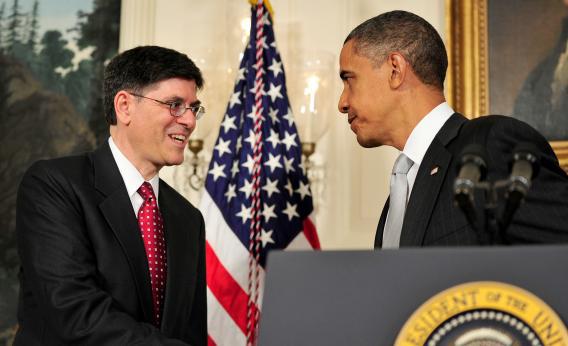There isn’t much ideological difference between incoming Treasury Secretary Jack Lew and outgoing Treasury Secretary Tim Geithner, but there is a major difference in their professional backgrounds and interests.
Geithner never worked for a financial services company and Lew put some time in making paper at Citigroup, but Geithner is actually very much a finance guy and Lew is very much not. Before becoming Treasury Secretary, Geithner’s previous roles were mostly in the bank regulation and international finance game. He ran the New York Fed, as a subcabinet Treasury official was very involved in the Asian financial crisis, worked in the Japanese embassy early in his career, and did a stint at the IMF. Lew’s background all involves a very different side of the Treasury portfolio—he worked on Capitol Hill for a long time, worked at the DNC, worked in the Clinton White House on health care reform, rose through the ranks at OMB, ran the management side of the Obama State Department early on, came back to OMB, and then became chief of staff.
Geithner is an administrator and a bank regulator, Lew is a budget guy and an in-the-weeds legislative wrangler. Both are very valid backgrounds for a Treasury Secretary but they’re quite different.
One question it naturally raises is the implications for the ongoing process of Dodd-Frank implementation. The issue’s a bit hard to parse. Geithner has exactly the biography that populists think they want from a top bank regulator, which is to say he’s been in public service almost his entire life, never worked on Wall Street, and yet is very knowledgeable about the issues. Yet the reality (exaggerated in the perception) is that Geithner has been fairly friendly to the interests of American finance, seeking to trim its sails but very much all in the name of stabilizing and shoring up the existing edifice. Lew is much more of an outsider to the whole scene. That might mean he takes a more skeptical view of the financial sector than his predecessor, or it might mean that it’s simply less a point of focus to him.
